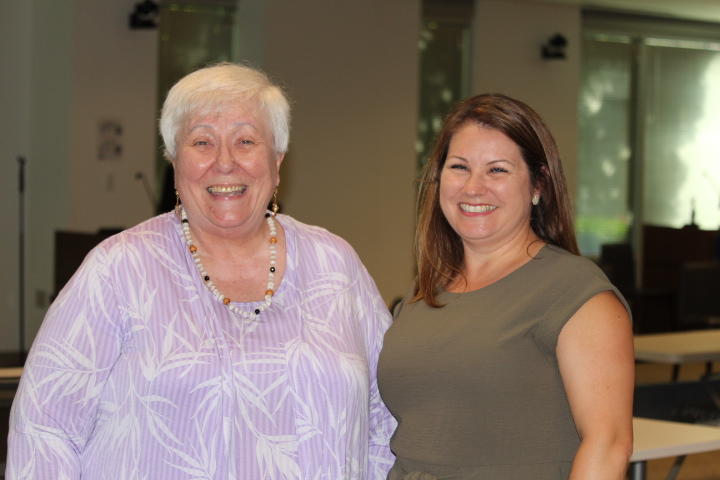
Section Branding
Header Content
Medicare tests payment plan for respite care costs so unpaid caregivers can 'take a break'
Primary Content
LISTEN: A new program is providing relief for family members and unpaid caregivers of Georgians living with dementia. GPB’s Ellen Eldridge has more on the program from Emory’s Integrated Memory Care practice and the Centers for Medicare and Medicaid Services.

Metro-Atlanta patients on Medicare living with dementia may now access an alternative payment model that aims to increase quality of life, help them remain in their homes for as long as possible, and decrease strain on unpaid caregivers, through a collaboration with Emory Integrated Memory Care and the Centers for Medicare & Medicaid Services (CMS).
More than 1.5% of Georgia's population — or roughly 188,000 people and growing — live with Alzheimer's disease and Alzheimer's disease-related dementias, according to the Alzheimer's Association.
Despite having a population of less than 100,000, Doughtery County had the seventh-highest prevalence of Alzheimer’s in the nation in 2020.
The report also indicates that 64% of the state’s 374,000 unpaid caregivers reported having at least one chronic health condition, and 59% felt that they were on duty “24/7.”
- MORE: Alzheimer's Association report says 1 in 5 women and 1 in 10 men will be diagnosed with dementia
Carolyn Clevenger, founder and director of Emory Integrated Memory Care, and professor at the Nell Hodgson Woodruff School of Nursing, said Medicare is also covering home care, respite and a few other types of respite, for the first time at 400 participating sites across the nation.
Emory Integrated Memory Care is the only one currently participating in Georgia.
"Respite means that someone comes into the home in blocks of time, four hours minimum, and Medicare is actually covering that time that has historically been largely out of pocket," Clevenger said.
The Guiding an Improved Dementia Experience — or GUIDE — model supports people with dementia and their unpaid or family caregivers.
This model differs from the current model by covering respite for unpaid caregivers, caregiver education, support groups, and 24/7 access to a clinical team, Clevenger said. GUIDE also adjusts payments based on quality of care and caregiver outcomes.
Sharon Hall and her husband, Rod Hall, live in Suwannee.
At age 60, he started started "acting like a jerk," Hall said.
Two years later, he was diagnosed at Emory's IMC clinic with early onset frontotemporal dementia, which is under the same metaphorical umbrella but is different than Alzheimer's disease.
"But when you say 'dementia,' that's [Alzheimer's] what they think," she said.
"Pre diagnosis is living hell," she said. "The personality changes in frontotemporal dementia. So you have a different person you're living with."
Hall needed a break from constant caregiving, she said, but respite care wasn’t covered, and private services were unaffordable.
"So I've had all those very beneficial services of education and therapy and a geriatric psychiatrist for Rod," Hall said. "I've had all of that available to me since 2016. But what this GUIDE does for me is add the part that was missing: Me."
The GUIDE model began July 1 and will run for eight years.
Correction
An earlier version of this story incorrectly read: "More than 10% of Georgia's population — or roughly 188,000 people and growing — live with Alzheimer's disease and Alzheimer's disease-related dementias, according to the Alzheimer's Association."

